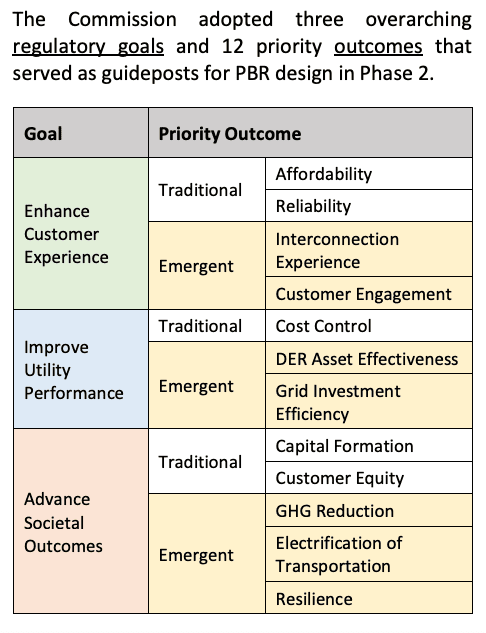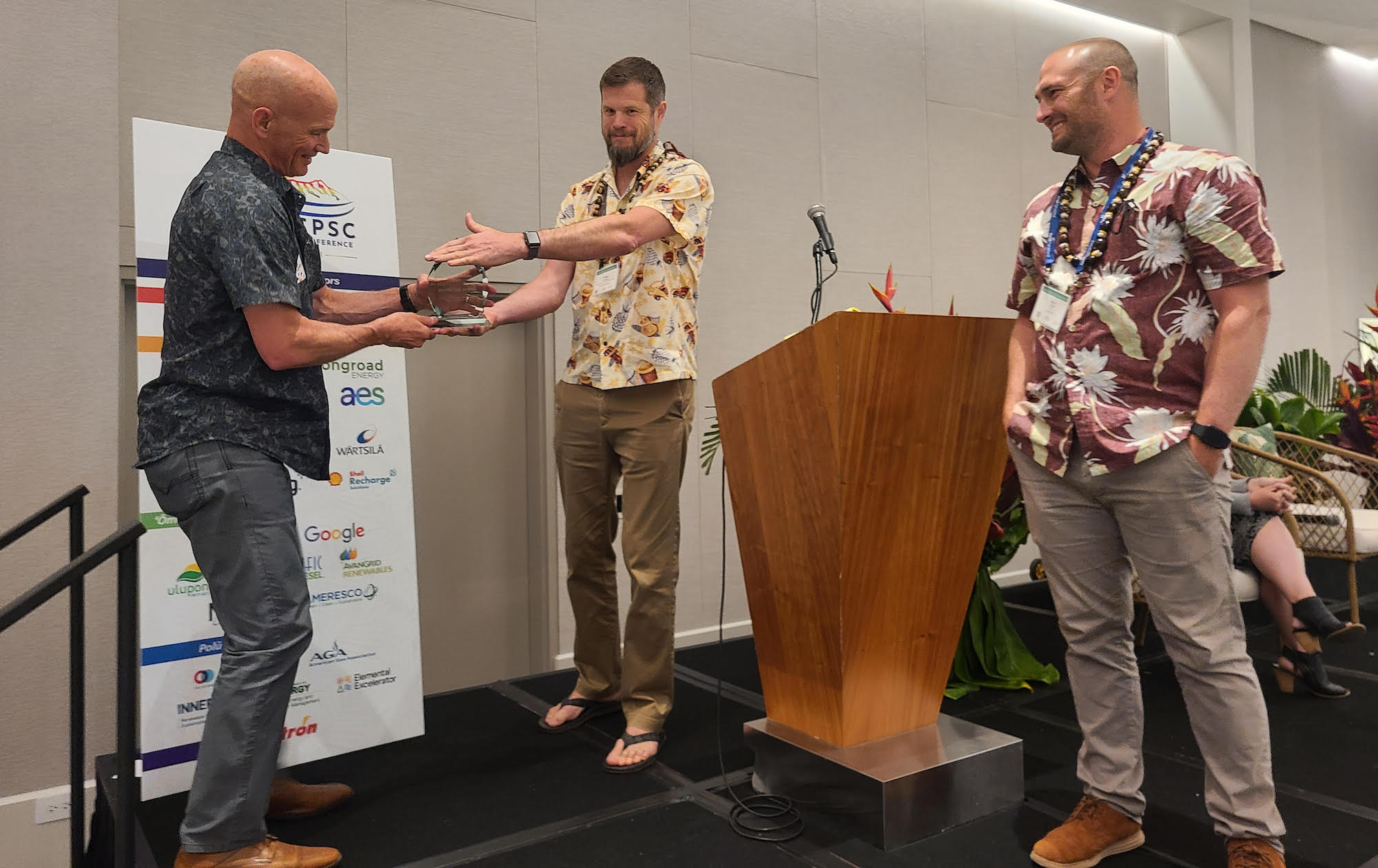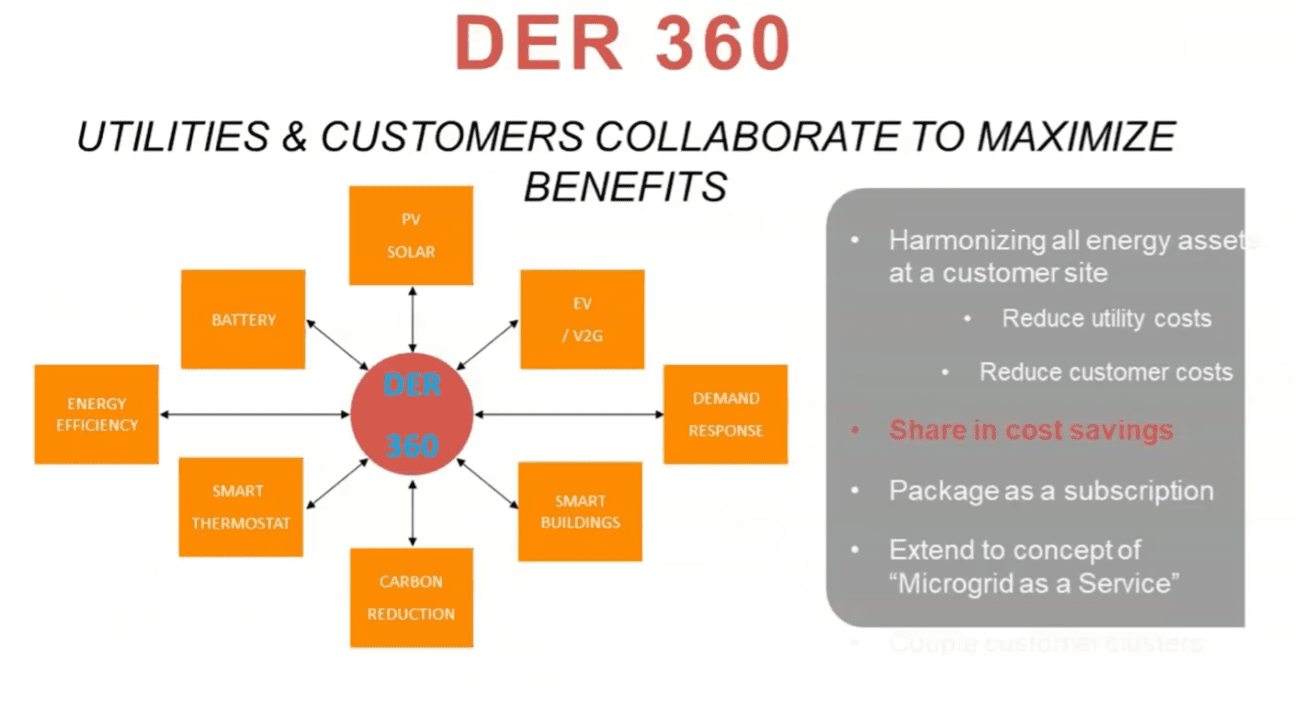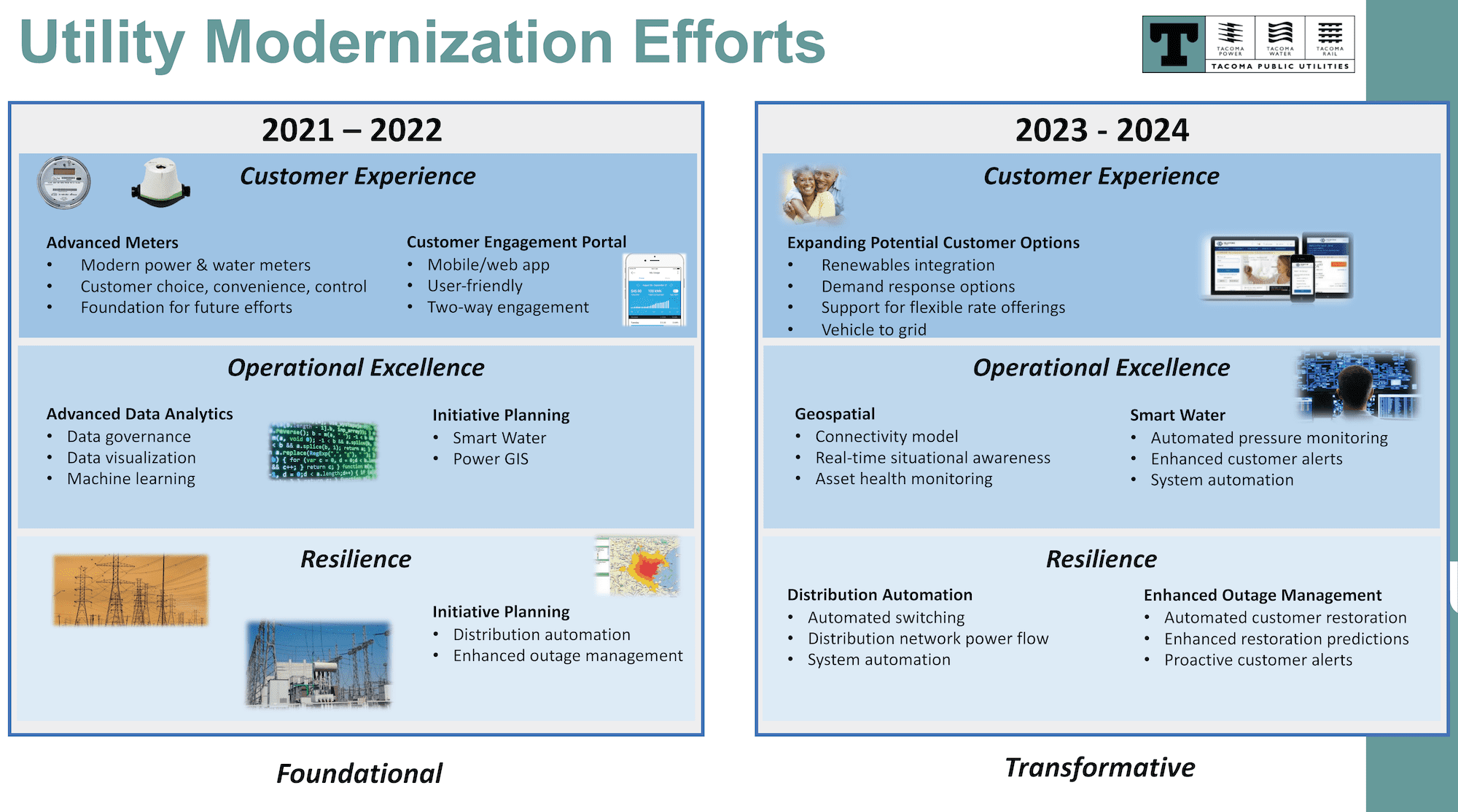This month Grid Forward hosted a “networking social” discussion with Hawaii PUC Commissioner Jennifer Potter to get her insights into the recent Phase II order for performance-based regulation (PBR).
As Hawaii transitions from the cost of service model, the structure it has established has both upside potential earnings for the state utility as well as lower earnings potential for underperformance. In general the structure drives a utility to control costs and encourages it to optimize investments by accessing performance incentives over a multi-year period. Incentives are included for accelerated achievement of the state Renewable Portfolio Standard (RPS), accessing grid services (using DERs and efficient grid management), DER integration, AMI deployments, equity and LMI energy efficiency, and grid reliability. Click here for the five-page summary.

Commissioner Potter shared, “The framework we made is strong and we are proud of the effort. It both protects the health and viability of the utility and focuses on the value that energy users in Hawaii will receive.
“We believe that this can be replicable to other places considering how performance-based regulation can work in their jurisdiction. The model establishes effective revenue opportunities and will lead to meaningful impacts on the way the energy system is managed.”
Join future socials as a Grid Forward member
At Grid Forward networking social events, members gather online for an interactive, themed discussion over lunch. Each open conversation is led by an expert on the chosen topic. The sessions start at 12:00 noon Pacific time and lasts 45 minutes — enough time to meet or reconnect with a few people.
While the discussions follow “Chatham House rules” – no record of the comments are shared publicly – sometimes Grid Forward gets permission to release comments like these.
Join Grid Forward to take part in our socials, roundtables, town halls and other member-only activities.



